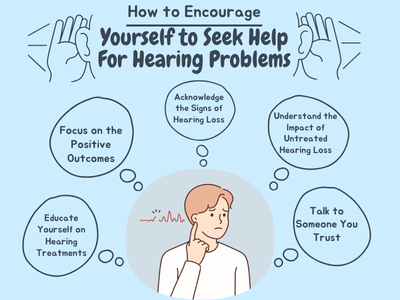Our Hearing Blog

How to Encourage Yourself to Seek Treatment for Hearing Problems
Hearing problems are more common than most people realize, yet they often go untreated for far too long. Whether it’s due to denial, fear, or simply underestimating the impact of hearing loss, many delay getting the help they need. If you’ve been experiencing hearing issues and are hesitant to seek treatment, know that you're not alone. The key is encouraging yourself to take that first step toward better hearing health. Here’s how to break the procrastination, getting off the couch and prioritizing your well-being.
Acknowledge the Signs of Hearing Loss
The first step toward seeking treatment is recognizing that you might have a problem. Hearing loss can sneak up gradually, making it easy to ignore. Some common signs include:
- Frequently asking people to repeat themselves
- Difficulty following conversations in noisy environments
- Turning up the volume on the TV or radio louder than others need
- Avoiding social situations because it's hard to hear
Once you recognize these signs, remind yourself that hearing issues are not something to be embarrassed about. Millions of people deal with hearing loss, and it's a manageable condition.
Understand the Impact of Untreated Hearing Loss
Hearing loss isn’t just an inconvenience; it can have a serious impact on your quality of life. Left untreated, hearing problems can lead to:
- Social isolation: Struggling to hear in conversations can cause people to withdraw from social activities, leading to loneliness.
- Mental health issues: There’s a known connection between untreated hearing loss and depression or anxiety.
- Cognitive decline: Research has shown a link between hearing loss and cognitive decline, including an increased risk of dementia.
By understanding these consequences, you can motivate yourself to seek help and prevent the situation from worsening.
1) Talk to Someone You Trust
Sometimes, talking to someone close to you can help. Share your concerns with a family member or friend and ask for their opinion. They might have noticed your hearing difficulties even if you haven't fully accepted them yourself. Their encouragement can be a powerful motivator to seek help. Hearing from others that they care about your well-being can make the idea of treatment less daunting.
2) Educate Yourself on Hearing Treatments
The fear of the unknown can be a major barrier to seeking treatment. Hearing aids, cochlear implants, and other modern hearing solutions have come a long way regarding comfort, appearance, and effectiveness. Knowing that many treatment options exist can make the process seem less intimidating. Take some time to research hearing aids, the benefits of early intervention, and what you can expect from a hearing assessment. The more informed you are, the less intimidating the process will feel.
3) Focus on the Positive Outcomes
It's easy to focus on the perceived inconveniences of getting treatment, like having to wear a hearing aid or scheduling doctor appointments. However, it’s essential to shift your perspective and focus on the positive outcomes. Treatment can lead to:
- Better communication with loved ones
- Greater enjoyment of social activities
- Increased confidence in daily interactions
- Improved mental and cognitive health
- Remind yourself of the benefits you’ll gain once you address your hearing problems.
4) Set Small, Achievable Goals
Overcoming any type of inertia requires setting small, manageable goals. You don’t have to fix everything in one day. Start by making an appointment with your primary care physician or an audiologist. This initial step can be as simple as a phone call or researching local clinics. From there, you can gradually work through the process of diagnosis and treatment. Taking small steps will make the journey less overwhelming.
5) Seek Support from Hearing Loss Communities
You’re not the first person to face these challenges. There are numerous online communities and local support groups for people dealing with hearing loss. Hearing other people’s stories can be incredibly encouraging. They can offer firsthand advice on what it’s like to go through treatment and how much it’s improved their lives. By seeing the positive impact on others, you might feel more confident about seeking help yourself.
6) Remember That Hearing Treatment is Self-Care
Sometimes, we delay seeking treatment because we prioritize everything else before our health. Think of hearing care as an essential part of your self-care routine. Just as you take care of your physical fitness, mental health, and dental health, your hearing deserves attention too. Investing in hearing treatment is a step toward ensuring a better quality of life now and in the future.
It’s natural to feel hesitant about seeking treatment for hearing problems, but delaying only makes things harder in the long run. Acknowledge the signs, educate yourself about the benefits of treatment, and take small steps toward better hearing health. Surround yourself with supportive people and remember that seeking help is an act of self-care that will improve not only your hearing but your overall well-being. Take that first step—you’ll be glad you did.
Blog Archive

